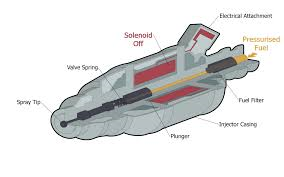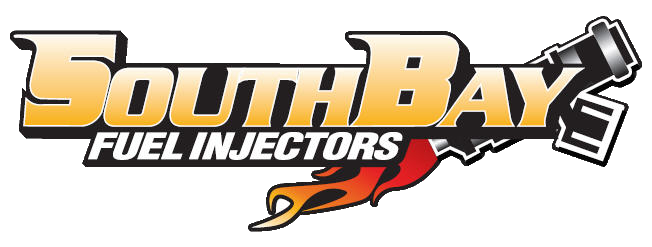Operation
Essentially an electronically controlled valve, here’s how a fuel injector works. A fuel pump supplies it with pressurized fuel as the injector open and close many times per second. When the injector is energized, an electromagnet moves a plunger that opens the valve, allowing the pressurized fuel to squirt out through a tiny nozzle. The nozzle is designed to atomize the fuel -- to make as fine a mist as possible so that it can burn easily.
Clean fuel injectors are a must for peak engine performance, fuel economy and emissions. If the fuel injectors are dirty and can't deliver their normal dose of fuel, then performance, fuel economy and emissions are all going to suffer. Dirty fuel injectors can't flow as much fuel as clean ones, and they can't they deliver the correct spray pattern that is so essential for clean, efficient combustion engine performance. The fuel feedback control system will compensate for the leaning effect once it is in closed loop, but it can't correct the underlying condition that is causing the problem.
When a fuel injector is dirty and not working properly, your vehicle will experience:
- Restricted fuel flow. You’ll see this by inspecting the fuel injector's fuel outlet line.
- Engine hesitation. Clogged fuel injectors upset an engine's normal air/fuel mixture, thus interfering with engine combustion and causing engine hesitation.
- Reduced engine power. Because the engine isn’t receiving steady flow of fuel, this impedes normal engine combustion and robs the engine of power.
- Poor gas mileage. This limited fuel flow and resulting decrease in engine combustion efficiency negatively impacts your gas mileage.
- Increased vehicle emissions which, again, are directly relating to the decrease in your engine’s combustion efficiency.
Want to keep your fuel injectors operating at peak efficiency? Send them to SouthBay Fuel Injectors for cleaning and maintenance.

